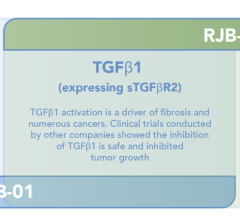August 31, 2015 — Medtronic plc announced first-of-its-kind findings from two independent studies that have identified a gene associated with life-threatening abnormal heart rhythms. The study results were presented in a hotline session at the 2015 European Society of Cardiology (ESC) Congress in London.
The studies evaluated genetic "markers" to determine which gene abnormalities may be associated with dangerous heart rhythms that can lead to sudden cardiac death (SCD). The initial Medtronic DISCOVERY (Diagnostic Data Influence on Disease Management and Relation of Genetic Polymorphisms to Ventricular Tachyarrhythmia in ICD Patients) trial identified a gene associated with SCD in patients with implantable cardioverter defibrillators (ICDs); the second study, Oregon Sudden Unexpected Death Study (Oregon SUDS), confirmed this finding in the general population.
The DISCOVERY trial used ICDs to monitor patients for abnormal heart rhythms and then identified the gene associated with a 50 percent relative risk increase in these life-threatening heart rhythms. These results were confirmed by the Oregon-SUDS, a community-based study that analyzed causes of SCD.
"This research is vital to helping us better understand why some patients are at higher risk of sudden cardiac death, one of the leading causes of death globally," said Sumeet Chugh, M.D., associate director of the Cedars Sinai Heart Institute and lead investigator for Oregon SUDS. "These findings put us one step closer to understanding the complexities of sudden cardiac death and may, someday, help us identify which patients are at risk."
Patients with these life-threatening abnormal heart rhythms experience abrupt loss of heart function that leads to death if they are not treated immediately. An ICD is a small implantable device that is placed under the skin to continuously monitor the heart; if it detects a severe abnormal heart rhythm, known as ventricular arrhythmia, it delivers therapy to restore a normal heartbeat.
"This is the first time a gene has been identified using ICD monitoring and then confirmed to be associated with sudden cardiac death in the general population," said Prof. Heiner Wieneke, principal investigator of the DISCOVERY trial and chief physician in the Department of Cardiology, Contilia Heart and Vessel Centre, St. Marien-Hospital Mülheim, Germany. "These findings are a first step to learning more about how to determine better ways to prevent and treat this condition."
The two-part presentation started with the DISCOVERY trial, a prospective, multicenter study of 1,145 patients that investigated the association of single nucleotide polymorphisms (SNPs, a genetic variation) with the occurrence of ventricular arrhythmias in patients receiving ICDs for primary prevention of sudden cardiac death. Data showed the gene GNAS holds two SNPs (c.2273C>T and c.393C>T) that were associated with an increased risk for ventricular tachyarrhythmias (VT) as identified by the ICDs.
In the second part of the analysis, the database of blood samples collected from 1,335 patients in the Oregon-SUDS trial was reviewed for the presence of SNPs identified in the DISCOVERY trial. During the validation phase, c.393C>T was found to be associated with an increased risk for SCD in a general population under both additive (odds ratio [OR] =1.2 [1.0-1.4], p=0.039) and recessive (OR=1.5 [1.1-2.1], p=0.01) genetic models. The study confirmed that this SNP was associated with a 50 percent increased risk of SCD.
For more information: www.medtronic.com


 September 09, 2025
September 09, 2025 









